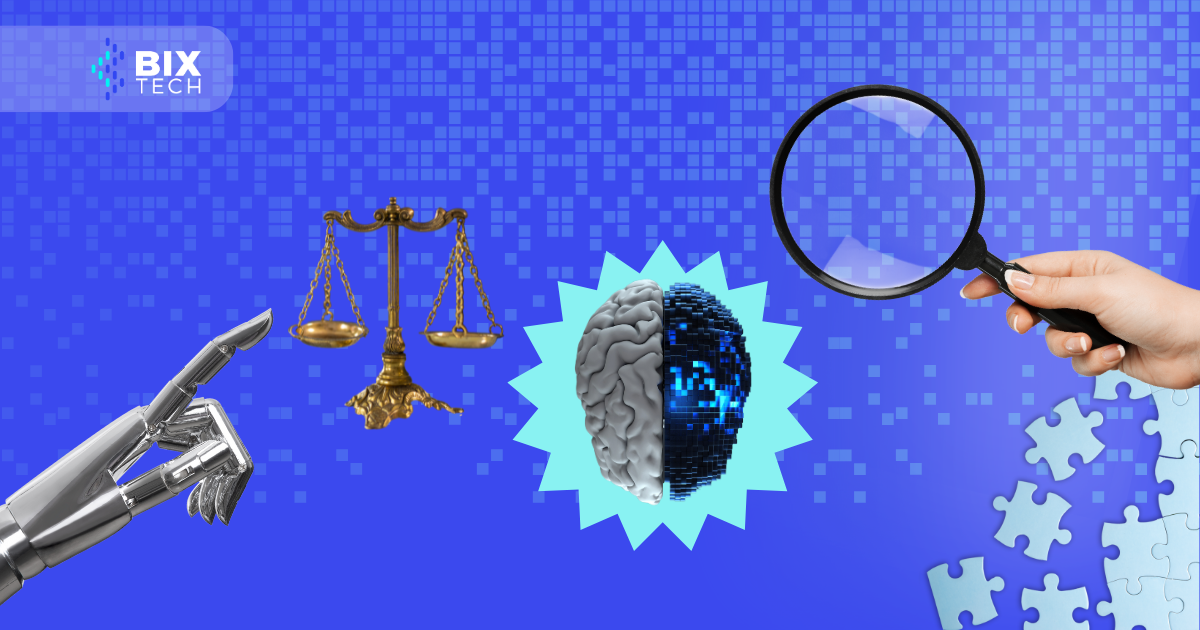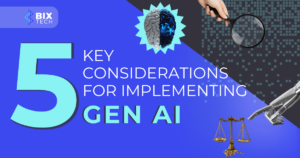
Generative AI represents one of the most exciting advancements in artificial intelligence. From producing creative content to automating complex processes, gen AI offers a broad spectrum of applications. However, before you integrate this transformative technology into your business, it’s essential to understand its nuances and implications fully. Here are five critical factors to consider to ensure a successful implementation of gen AI:
Deep Understanding of Generative AI Capabilities and Limitations
Gen AI leverages machine learning models to create new content based on patterns in existing data. This includes generating text, images, designs, and even complex simulations. Understanding its capabilities and limitations is vital:
- Capabilities: Generative AI can create realistic and contextually relevant content, automate content creation, and even assist in innovative design processes. Its ability to synthesize large amounts of data allows it to produce outputs that can be both surprising and impressive.
- Limitations: Despite its advanced capabilities, gen AI has limitations. It relies on the data it has been trained on, which means it can inadvertently reproduce biases present in that data. Additionally, it lacks true creativity, as it does not generate genuinely novel ideas but rather recombines existing knowledge.
A thorough understanding of these aspects will help you set realistic expectations and better align generative AI with your business goals.
Addressing Data Privacy and Security Concerns
Data privacy and security are crucial when working with generative AI, given that it often involves handling large datasets that may include sensitive information:
- Data Protection: Implement robust data protection measures to safeguard sensitive information. This includes encryption, access controls, and secure data storage practices. Compliance with regulations like GDPR (General Data Protection Regulation) and CCPA (California Consumer Privacy Act) is essential.
- Ethical Considerations: Ensure that gen AI does not compromise data privacy or produce outputs that reveal confidential information. Develop clear policies for data usage and transparency to maintain trust with customers and stakeholders.
By addressing these concerns, you can mitigate risks and protect both your data and your reputation.
The Critical Role of Quality Data
The performance of generative AI is highly dependent on the quality of the data it processes:
- Data Cleanliness: Clean, accurate, and well-organized data leads to better outcomes. Ensure that your datasets are free from errors and inconsistencies, as these can negatively impact the AI’s performance.
- Data Diversity: Diverse datasets enable generative AI to produce more innovative and varied results. Avoid using narrow datasets that might limit the scope of the AI’s output. A well-rounded dataset helps the model generate more relevant and creative content.
Investing in high-quality data is essential for achieving effective and reliable results from your generative AI systems.
Integration and Workflow Optimization
Integrating generative AI into your existing workflows requires careful planning and execution:
- System Compatibility: Ensure that the gen AI tools you choose are compatible with your current technology stack. This includes considering integration with other software and systems to streamline processes and enhance efficiency.
- Workflow Adaptation: Review how generative AI will fit into your current workflows. You may need to adjust existing processes to accommodate the new technology and train your team on how to utilize it effectively. Proper planning ensures that generative AI complements rather than disrupts your operations.
Effective integration will help you maximize the benefits of gen AI while maintaining operational harmony.
Navigating Ethical and Compliance Issues
Generative AI introduces several ethical and compliance considerations that must be addressed:
- Bias and Fairness: Be proactive in identifying and mitigating potential biases in AI-generated content. Regularly evaluate your models to ensure they produce fair and unbiased outputs. This is crucial for maintaining ethical standards and avoiding unintended consequences.
- Legal and Regulatory Compliance: Stay informed about relevant legal requirements and industry regulations. Ensure that your use of generative AI complies with applicable laws and ethical guidelines to avoid legal issues and maintain industry standards.
Addressing these ethical and compliance issues will help you implement gen AI responsibly and effectively.
Get Expert Guidance for Your Generative AI Projects
Generative AI has the potential to revolutionize various aspects of your business, but its successful implementation requires careful planning and expert knowledge. At BIX Tech, our team of specialists is dedicated to helping you navigate the complexities of generative AI and integrate it seamlessly into your operations.
Ready to explore how gen AI can transform your business? Contact us today for tailored guidance and support from our experts. Click here to get in touch with our team and embark on your AI-driven journey with confidence!










